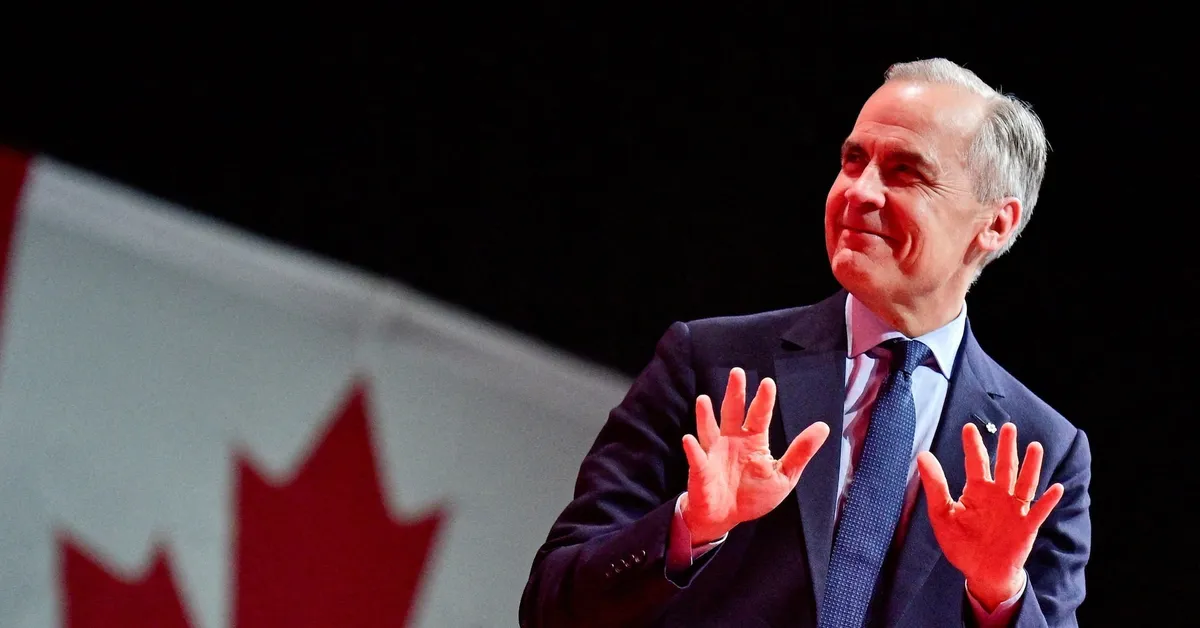
Canadian Prime Minister Mark Carney has achieved a significant victory for the governing Liberals in the recent election held on April 29, positioning himself as a key player in the global advocacy for multilateralism. This comes against the backdrop of U.S. President Donald Trump’s increasingly protectionist policies. Carney is notably the first individual to lead two G7 central banks, giving him the necessary experience to garner immediate international credibility, as noted by various experts.
During the campaign, Carney's pointed criticisms of Trump attracted attention and speculation from international observers. On April 3, he articulated Canada’s readiness to step up as a leader in fostering a coalition of nations that share common values. "We believe in international cooperation. We believe in the free and open exchange of goods, services, and ideas. And if the United States no longer wants to lead, Canada will," he stated in Ottawa, emphasizing his commitment to global collaboration.
In this election, Carney's Liberals triumphed over the Conservatives, who were led by Pierre Poilievre. Poilievre's slogan, "Canada First," and his sometimes abrasive demeanor drew parallels to Trump, which likely contributed to his defeat. The Conservatives had maintained a substantial lead in opinion polls for several months, but this advantage dwindled after Trump imposed tariffs on Canada and made threats to annex the country, prompting many Canadians to reconsider their consumption of U.S. goods and travel.
Despite his victory, Carney's Liberal Party secured only a minority of seats in the House of Commons, which could lead to a more unstable government reliant on smaller parties to maintain power. As Australia approaches its election on May 3, political strategists have closely monitored Carney’s polling surge, recognizing a similar trend of voter apprehension regarding the global ramifications of Trump’s policies, which has shifted support toward the center-left Labor Party in Australia.
Colin Robertson, a former Canadian diplomat who worked with Carney at the Finance Ministry, describes him as Canada's best-prepared prime minister since the 1960s. "He goes in extremely well-prepared, with a superb Rolodex, and people will take his call and look to him because their challenges are economic right now," Robertson explained. Carney is expected to prioritize expanding Canadian trade with Europe, Australia, and Asian democracies like Japan, as a strategy to mitigate the economic fallout from the newly imposed U.S. tariffs on cars, steel, and aluminum.
Strengthening Canada's economy is anticipated to be Carney's immediate focus, particularly through advancing infrastructure projects designed to decrease Canada's reliance on the United States, which currently consumes 90% of Canada's oil exports. However, leading the smallest nation in the G7 presents a unique challenge. Carney must forge a global coalition without provoking a confrontational stance against Trump.
Roland Paris, a former adviser to ex-Prime Minister Justin Trudeau and now a professor of international affairs at the University of Ottawa, remarked on the delicate balancing act Carney faces. "He and Canada have an interest in coordinating with other like-minded countries, but without necessarily setting up Canada as the organizer of an opposition. Why turn Canada into that kind of target?" Paris noted that Carney's composed demeanor and financial acumen might elicit a more constructive response from Trump compared to the belittling treatment directed at Trudeau.
Expectations are high that Carney will seek collaborative opportunities with Trump, possibly during the upcoming G7 Leaders' Summit in Alberta. Analysts predict he may orchestrate a trade meeting with Trump and Mexican President Claudia Sheinbaum. Additionally, Carney has committed to accelerating military spending and reducing dependence on the U.S. for defense procurement, while also engaging with the European Union's proposed 800-billion-euro defense fund.
Despite Carney's election win being a positive signal for global center-left leaders, it may not serve as a replicable model for others due to Trump's unique and existential threat posed to Canada. In Australia, for instance, the growing voter discontent with Trump has negatively impacted centre-right opposition leader Peter Dutton, who previously led in the polls.
Andrew Carswell, a former press secretary to conservative Liberal Prime Minister Scott Morrison, highlighted the broader implications of Trump's administration on conservative movements worldwide. "Trump has been a wrecking ball through the conservative coalition here and more broadly across the world," he stated, underscoring the challenges faced by conservative parties due to Trump's policies.
In Hungary, Viktor Orban, who has expressed admiration for Trump, is now confronting the most significant opposition in years as economic conditions worsen. British Prime Minister Keir Starmer, who received Carney's endorsement for the Labour Party in 2023, has adopted a more conciliatory approach to Trump but has struggled to improve his ratings. Patrick English, director of political analytics at YouGov, remarked on the potential political ramifications of a tougher stance on Trump for the Labour Party, noting that "the tariffs, the trade war, all of this, his position on Ukraine, all go down terribly with the British public." In Canada, however, public sentiment is clear: supporting Trump is largely viewed as anti-Canadian.
Ultimately, Carney's victory offers insights for conservative parties beyond the U.S., emphasizing the importance of distancing themselves from any association with Trump's "Make America Great Again" movement. As the political landscape continues to evolve, the implications of Carney's leadership will be closely monitored both domestically and internationally.